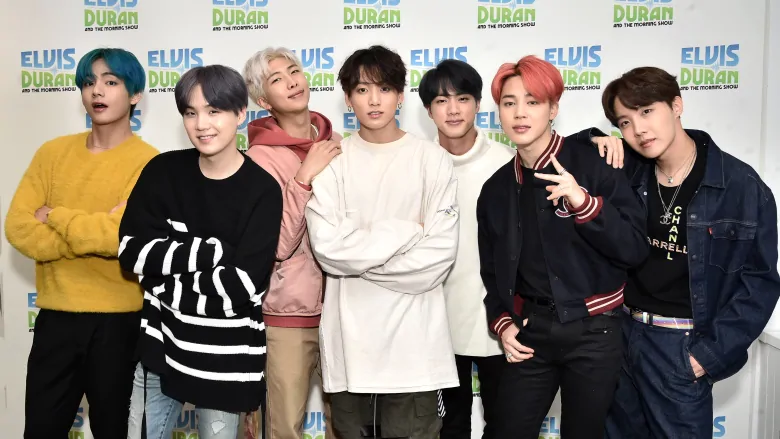Despite the ‘declaration’ of K-pop stars, the K-pop industry is far from ‘environmentally friendly.’ This is because the significant sales that made $200 million in K-pop exports are considered the main culprit in causing the ‘crisis of the earth.’ It is the shadow of the heyday of K-pop, which had an unprecedented boom. ‘Environmental issues’ have emerged as an unavoidable issue for K-pop artists and the industry in conjunction with the ‘strong demand’ of the fandom.
The fandom’s gaze on K-pop, the protagonist who opened the era of ‘100 million Hallyu fans’, turns to environmental issues. The Gen Z fandom, which was influenced by asking K-pop artists to become ‘issue speakers,’ is now again giving a strong voice to the K-pop industry. It is a call to start climate action responsibly.
Da-Yeon Lee, an activist of K-Pop 4 Planet, a climate crisis response platform created by the K-pop fandom, said, “The MZ generation, the majority of the K-pop fan base, has been directly affected by the climate crisis and is highly sensitive to the climate crisis.” “K-Pop 4 Planet is our We are calling for climate action in the hope that K-pop will not be the last generation to love K-pop.”
This year, K-pop album sales recorded about 49.7 million copies (from January to October, Gaon Chart aggregated), recording a record export of $189.74 million (about 225.6 billion won, based on the Korea Customs Service). is bitter. This is because the garbage produced by albums is a problem for the K-pop industry.
K-pop albums, which have grown in size in the industry, are a significant source of revenue for entertainment companies and are an essential collection of K-pop fandoms. K-pop albums don’t sell just one CD. Entertainment companies compose a variety of album packages that arouse the desire to own them. It contains photobook-level photobooks, credit card-sized photo cards, posters, postcards, stickers, and in some cases, even childhood photos. In many cases, a CD contains up to 25 components. Here, we will give you one ticket to the fan signing event. Fans don’t buy just one album, as they try to have ‘many more’ entry tickets with a thrifty composition. “Buying 50 albums and destroying 49 albums” is frequent among fans. Jung Min-Jae, a popular music critic, pointed out, “In K-pop albums, too many components, overpackaging, and strategies to induce duplicate purchases, all agencies tend to collectively drive overconsumption.”
The problem is ‘material.’ Most K-pop albums are not easy to recycle and are harmful to the environment. First, it is a ‘bad plastic’ selected by the international environmental group Greenpeace from the packaging material. Records are packaged in transparent polyvinyl chloride (PVC), and CDs are made from non-recyclable plastic. Photobooks and photocards use coated paper, but they are often thrown away due to the hassle of sorting and disposing of coated paper and paper.
Reducing record waste is not easy with the efforts of consumers alone. Activist Lee Da-Yeon emphasized, “K-pop fandoms around the world are pointing out the album problem and demanding unnecessary secret packaging, minimization of plastic packaging, and simplification of packaging.”
The industry is also listening to the needs and voices of the MZ generation, the main K-pop fan base, and preparing countermeasures. From the beginning of the year, there were gradual signs. Singer Chungha made it with eco-friendly materials for the first time in K-pop through her first full-length album ‘Kerencia’ released earlier this year. Song Minho’s 3rd full-length solo album ‘TO INFINITY,’ released on the 7th, was made using low-carbon paper, recycled paper, and 100% biodegradable plastic. Song Min-ho’s agency, YG Entertainment, said, “Both artists and agencies are deeply interested in environmental issues and are trying to find ways to reduce the use of plastics and plastics, realizing the results of their concerns.”
Changes in the music market happen only when the change in fans’ perception is followed along with the active actions of the agencies. Critic Jeong Min-Jae said, “Even if immediate damage occurs, active actions by agencies, such as improving the album release method that encourages large consumption, should be prioritized. They need to reconsider their culture and switch to natural consumption.”
The ‘climate crisis’ is a ‘problem of survival.’ The music industry worldwide is also sympathizing with the climate issue and is adopting a ‘sustainable management method. British record label The Beggars Group, which includes Radiohead and Adele, and Ninja Tune, a famous British indie label, declared carbon neutrality, an unusual record for a record label.
“The Korean music industry has innovatively shown strong adaptability despite the pandemic,” said Sederbau Saji, professor of Korean Studies at Pusan National University. . K-pop’s MZ generation fandom also demands future-oriented ‘climate action’ from entertainment companies. More than 10,000 signatures from 83 countries in the campaign statement ‘There is no K-pop on a dead earth,’ which K-Pop for Planet called for a change in entertainment companies.
Compared to the high-level demands of the K-pop fandom, the industry is still in its infancy. It is not easy to create change with only a few perception shifts. Experts emphasize that the K-pop industry must come together. Critic Jeong Min-Jae said, “At a time when K-pop recorded the highest record sales and exports ever, small and medium-sized agencies, led by the four major music agencies (SM YG JYP Hive), gathered to gather common opinions on environmental issues such as album production and low-carbon concerts. We need to agree,” he said. Reporter Ko Seung-hee











